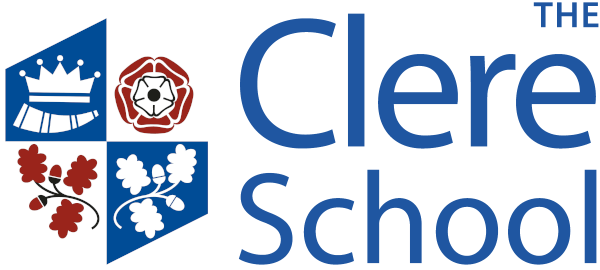Pupil Premium
Overview
Since 2011/12 schools have been eligible to receive funding in the form of the Pupil Premium. The level of funding is directly set by the number of pupils who receive free school meals or who are designated as ‘Looked after Children’ or children of services families.
Principles
The Clere School will inspire disadvantaged pupils to have the same high expectations and opportunities as non-disadvantaged pupils. This will be achieved through relentlessly high expectations and pupils’ engagement with a highly academic, decidedly challenging and uniquely personalised curriculum.
We continually strive to ensure that teaching and learning opportunities meet the needs of all our pupils and our ambition is to ensure that appropriate provision is made for pupils who belong to vulnerable groups.
Reporting
It is the responsibility of the Headteacher or delegated member of staff to produce termly reports to Governors, highlighting monitoring procedures and development outcomes.
Detailed monitoring procedures are fully embedded within the school and regular checks on the quality of teaching and learning being experienced by disadvantaged pupils are undertaken. Academic outcomes for this group are highly scrutinized alongside performance and development outcomes which are less easily empirically measured. We also recognise that it is not always possible to disaggregate an element of a complex intervention package as the single cause of an improved outcome.
What is Pupil Premium Funding?
The Pupil Premium is additional funding given to schools so that they can support their disadvantaged pupils and close the attainment gap between them and their peers. It is up to each individual school how the funding is used but its primary aim is to support our more vulnerable learners.
Not all of our identified pupils are eligible for Pupil Premium funding however we will at times include them in the provision we provide to support a wider range of pupils who have been identified as vulnerable or disadvantaged in some way.
Funding Allocation
We recognise that not all pupils who receive free school meals will be socially disadvantaged and that not all pupils who are disadvantaged are registered or qualify for free school meals. We therefore reserve the right to allocate PPG funding to support a wider range of pupils who have been legitimately identified as being disadvantaged. The target group who receive support from PPG funding is subject to continual scrutiny by pastoral staff, senior leaders and Governors of The Clere School.
The Clere School uses its Pupil Premium Funding in a range of supportive and interactive ways. We have a wide variety of intervention strategies to raise attainment in reading, writing, communication and mathematics. These strategies are effective because they are driven by individual pupil’s academic, emotional and social needs. Senior leaders oversee the spending of the Pupil Premium Fund which has resulted in training on how to achieve outstanding teaching and learning in whole class, small group and one to one sessions. Alongside outstanding teaching and learning strategies, the effective use of Learning Support Assistants is also a focus. Broadly speaking, funding is allocated to the following key areas:
Individual pupil spend
Provision of extra-curricular group based opportunities/activities.
Individual and group support for academic interventions KS3/KS4
Financial support for literacy and numeracy interventions for PPG children currently in year 6 through “Primary Transition” work.
Enhanced level of internal/external staffing expertise to support pupil development.
Provision of off-site educational opportunities for target group pupils
Reporting
It is the responsibility of the Headteacher, or delegated member of staff, to produce termly reports to Governors, highlighting monitoring procedures and development outcomes.
Detailed monitoring procedures are fully embedded within the school. Academic outcomes for this group are highly scrutinized alongside performance and development outcomes which are less easily empirically measured. We also recognise that it is not always possible to disaggregate an element of a complex intervention package as the single cause of an improved outcome.

